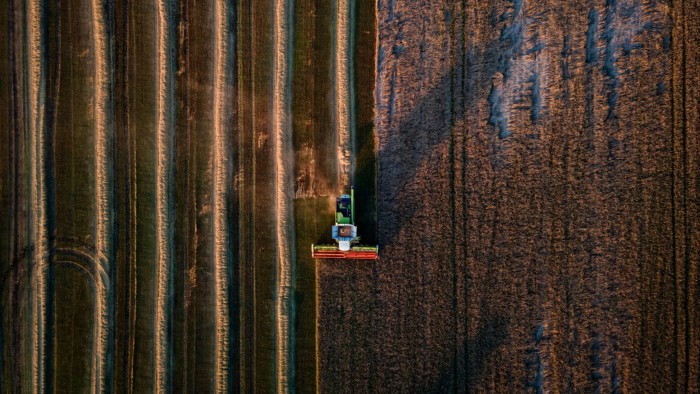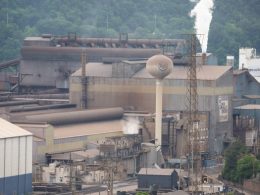Stay informed with free updates
Simply sign up to the War in Ukraine myFT Digest — delivered directly to your inbox.
The EU is preparing to apply much higher tariffs on Ukrainian imports within weeks, hitting Kyiv’s economy at a crucial time in its fight against Russian aggression.
The decision to abruptly end special trade arrangements — which allowed most Ukrainian goods to enter the EU duty free — came after Poland led a push to protect the bloc’s farmers, according to diplomats.
The EU has an existing free trade deal with Ukraine but went further in the wake of Moscow’s 2022 invasion and temporarily suspended remaining duties.
These arrangements lapse on June 6 and the EU is planning to replace it with “transitional measures” while the two sides update their overall trade agreement.
But diplomats said this transitional proposal, recently sent to EU member states, would drastically cut the tariff free quotas of agricultural products — a lifeline for Ukraine’s farmers and budget.
When first established in 2022, the tariff-free regime applied to Ukraine’s cheap poultry, wheat and sugar, much of which was passing through EU countries en route to Africa and Asia. But farmers and politicians in Poland, France and elsewhere soon blamed Ukrainian exports for driving down domestic prices.
The issue has dominated Polish politics, with successive governments imposing unilateral import bans on Ukrainian grain, in breach of EU rules. Ahead of presidential elections on Sunday, Warsaw asked the Commission to delay highly unpopular trade talks with Kyiv to minimise the chances of the nationalist opposition candidate, Karol Nawrocki, the diplomats said.
A Commission spokesperson confirmed that the postwar arrangements would not be renewed “because we are currently working on the review” of the EU-Ukraine free trade agreement.
“The Commission is also looking into possible transitional measures in case the negotiations are not finalised and applied by June 6,” the spokesperson added.
“It’s a really bad signal to Ukraine,” said Bernd Lange, chair of the European parliament’s trade committee. “It will take at least until October to find a solution.”
His committee will question Commission officials on Wednesday about why promised trade talks have stalled, given that the June deadline was “known for a long time”, Lange said. “The situation is really not acceptable.”
Ukraine’s government estimates that a return to prewar trade conditions would reduce its revenues by about €3.5bn a year.
“It’s a huge step back,” said Mykhailo Bno-Airiian, trade representative for Ukraine’s employers federation. “What we see now is a lack of understanding.”
Two EU diplomats told the FT that the Commission’s transitional measure involves splitting the annual tariff free quota into 12 monthly ones, to reduce imports while talks proceed.
The biggest impact is on maize, sugar, honey and poultry.
The maize quota will drop on an annual basis from 4.7mn tonnes to 650,000 tonnes. Poultry will fall from 57,110 to 40,000 and sugar from 109,000 to 40,700.
“We need predictable trade. We don’t know yet what the rules would be and that is not acceptable,” said Bno-Airiian. “The business is specific — poultry and sugar is sold fresh . . . you will be out of the market.”
Source link









